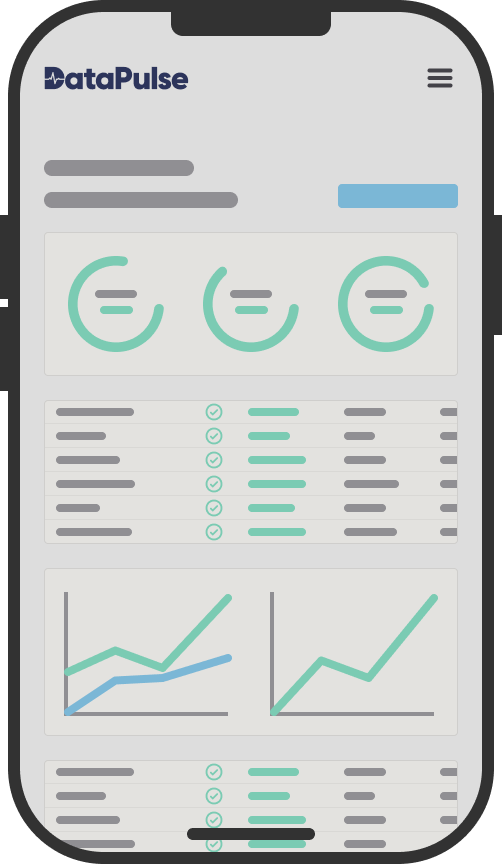Keyword Research Services
Keywords: Because we can't actually read minds...yet.
Keyword research is more than just finding phrases, it's about understanding the motivations and interests of your target audience. By knowing what they search for, you step into their shoes, design content that speaks to them, and make your brand visible where it matters most. In other words, keywords are your compass for any and all marketing efforts. Without solid keyword research services, you’re navigating blind.

Success Story
Pool supplies in hot demand! 🌊
The Problem: We were experiencing steady growth, but needed to dial that in once COVID hit to capitalize on the massive opportunity of people spending time at their pools more frequently.

"Content is king. With the massive opportunity of significantly increased searches around pool terms, we went full speed ahead on creating content for as many PLPs/collections as possible. The combination of that strategy and the highly growing demand resulted in some incredible growth for the business."
- Wrote content around 250-500 words for hundreds of their PLPs.
- Internally linked them together utilizing relevant anchor text.
- Continuously ran position analysis' to identify where to prioritize content next.
- Ran bi-monthly technical site scans to address issues such as broken links, broken images, missing alt text, and meta titles.
Digging up the good stuff so you don't have to.
We approach keyword research from every angle and niche of your business. From low keyword difficulty and low volume to the top, we don’t leave a single leaf unturned as your SEO strategy is only as good as the keyword research that sets the foundation. We’ll identify the terms that not only will drive traffic to your site, they’ll drive the right traffic that’ll convert and lead to real business growth.
All too often we see agencies tout their ability to get hundreds of keywords ranking in the top 3, but are businesses seeing true growth from that? Most likely not.

SEO
Tyler Higginbotham
SEO Account Lead

SEO
Peter Nastasi
SEO Account Lead

SEO
Alan Lucy
SEO Manager

SEO
Tyler Ziton
SEO Account Lead

Support
Daniel Lagan
IT/Analytics Specialist

SEO
Leah Harper
Senior SEO Account Lead

Support
Joel Beger
Developer

Support
Adam King
Senior SEO Specialist
Testimonials
We prioritize our client's growth.
You are missing that key piece of the puzzle—the one that will take your business to the next level. You've tried everything, but nothing seems to work. You're frustrated, and you're not sure what to do next. We get it. We've been there. We've helped hundreds of businesses just like yours and we know what works and what doesn't. We're here to help you succeed.

"Digital Position is an excellent extention of our team. We have worked with them for about a year to scale our business at a profitable level, and have accomplished that time and time again. Unlike many partners, they are always proactive to meet our needs and address any concerns. I highly recommend the Digital Position team!"
Jason Jabaut
Chief Operating Officer at Fleet Feet

"I connected with Digital Position and I wasn't sure exactly what I needed. They saw the opportunity to take our direct-to-consumer website and really just blow it up - it's something that I didn't realize the potential for myself. They went above and beyond to make sure the website, user experience, SEO, and PPC was in top-top shape. They've just done a phenomenal job for us."
Mike Shelley
Founder at Sgt Knots
Meet![Image]()
We didn't like the reporting options out there, so we built our own! DataPulse allows you to log in and follow along with your performance. Anything that we can see in your accounts? Yeah, you can see it too!
We're an open book, every step of the way.
Every Digital Position client gets full access to a managed DataPulse profile for their business.
- Precise PPC & SEO Performance Tracking
- Auto Updating Dashboards
- Performance Forecasting with Current Month Projections
- Account Performance Alerts
- Campaign Optimization Scripts
- Unlimited Data Retention
- Year Over Year Performance Comparisons
- Granular Data Filters


Here are some additional tips for doing amazing keyword research:
- Use Google Trends to see how search trends are changing over time.
- Use Google Search Console to see which keywords are driving traffic to your website.
- Use Google Analytics to see which pages are converting into customers.
- Use social media to see what people are talking about/trending.
- Competitor analysis: Look at what keywords your competitors are targeting and analyze their pages to see how they are ranking for those keywords.
By following these tips, you can do amazing keyword research that will help you to understand what your target audience is searching for and create content that is relevant and engaging. This will lead to more traffic, conversions, and brand awareness for your business.
FAQs
Keyword research is a fundamental SEO practice of finding, analyzing, and using terms people enter into search engines while searching for content like yours. By doing so, we can strategize to maximize your website's online visibility.
Keyword research services help you to understand the language of your target audience and then use that to your advantage. It's that first important step in making sure your content is not just good, but discoverable to the right people. Simply put, effective keyword research boosts your online visibility and helps ensure your SEO efforts don't go to waste.
Our contracts are month-to-month, because valuable services don't need to bind clients in long-term contracts. Our goal is to earn your satisfaction and trust every single month!
Besides giving you a dedicated Slack channel, we provide monthly reports on our keyword research services, complete with strategy calls. Plus, with our DataPulse software, you can log in and view all your metrics in real-time whenever you want.
There’s no one-size-fits-all tool but we swear by a custom blend of industry-standard tools (such as Screaming Frog and SEMRush), supported by our own DataPulse. It's all about leveraging multiple tools and tailoring them to your unique needs as a health and wellness business.
Short tail keywords are broad and general, while long tail keywords are specific phrases with typically three or more words. Think "running shoes" (short tail) vs. "men's red trail running shoes size 9" (long tail). The magic is in striking the right balance to grab the right audience.
A common misstep is trying to rank for too competitive or irrelevant keywords, or taking a one-size-fits-all approach. Each client is different, so a custom approach is key. And don't forget to analyze! Keyword research without analysis is like running in the dark.
Track, measure, tweak, repeat. Monitor your rankings, organic traffic, engagement metrics, and conversions. Use it to inform adjustments to your keyword strategy. Our in-house tool, DataPulse, can make this way easier for you.
How you do one thing is how you do everything.
It's time for you to feel what a marketing agency with the right priorities can do for you. We're ready when you are. 🚀





